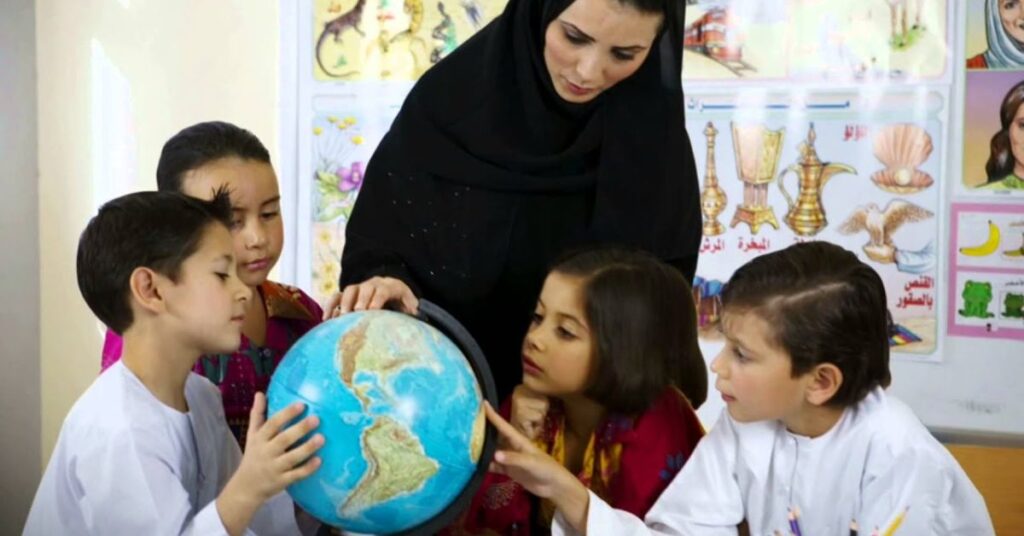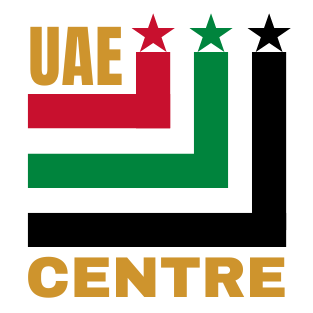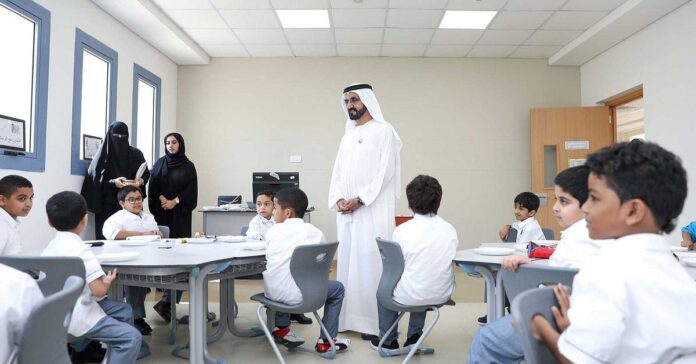Introduction
The schooling and education system in the UAE is one of the most diverse in the world. It includes public and private schools, international curriculums, and homeschooling options. The UAE government ensures high education standards through strict regulations and quality checks. Parents can choose from various curriculums based on their child’s needs, including British, American, IB, and CBSE.
Choosing the right school can be challenging. With so many options, parents often feel confused about fees, admission processes, and curriculum differences. Understanding the schooling and education system in the UAE helps parents make informed decisions. This guide will simplify everything, providing clear insights into costs, school types, and other essential details.
The UAE’s education system is structured to support both local and expatriate students. Public schools mainly follow the Arabic curriculum, while private schools offer international options. Whether looking for a top international school or exploring homeschooling in Dubai and Sharjah, this guide will help you navigate your choices.
Education System in the UAE

The education system in the UAE is modern and diverse. Public schools are free for Emirati students and follow an Arabic curriculum. English is taught as a second language. Private schools offer British, American, IB, CBSE, and other curriculums. Parents have many options based on budget and preference. The government strictly regulates schools to maintain quality education.
Finding the right school can feel overwhelming. Each emirate has different rules and fees. Dubai and Abu Dhabi have top international schools with advanced facilities. Public schools focus on local culture, while private schools follow global standards. Education is compulsory from age 6 to 18. With so many choices, understanding the education system in the UAE helps parents make smart decisions for their child’s future.
Read This: choosing the right school gear to avoid back pain
Comparing the Cost of Education in Each Emirate
The cost of education in the UAE varies by emirate. Dubai and Abu Dhabi have the most expensive schools, especially international ones. Tuition fees in these cities can range from AED 15,000 to over AED 100,000 per year. Sharjah and Ajman offer more affordable options, with fees starting around AED 10,000. Public schools are free for Emirati students, but expats must pay a small fee. Additional costs include books, uniforms, transportation, and extracurricular activities.
Choosing the right school depends on budget and curriculum. British and American schools usually have higher fees. CBSE and MOE curriculum schools are more affordable. Dubai’s Knowledge and Human Development Authority (KHDA) and Abu Dhabi’s Department of Education (ADEK) regulate tuition fees. Some schools offer scholarships or sibling discounts. Understanding the cost differences across emirates helps parents plan their child’s education wisely.
International Schools in the UAE
The UAE has some of the best international schools in the world. These schools offer British, American, IB, French, and other global curriculums. Many expat families prefer international schools because of their high teaching standards and diverse student communities. Dubai and Abu Dhabi schools are the most popular, but Sharjah and other emirates also have great options. Tuition fees vary based on location, curriculum, and facilities. Most schools have modern campuses, well-trained teachers, and advanced learning programs.
Some of the top international schools in the UAE include:
- Dubai College (British Curriculum, Dubai) +971 4 399 9111
- American School of Dubai (American Curriculum, Dubai) +971 4 395 0005
- GEMS Education Schools (Multiple Curriculums, Across UAE) +971 4 573 5000
- The British School Al Khubairat (British Curriculum, Abu Dhabi) +971 2 204 0200
- Repton School (IB & British Curriculum, Dubai & Abu Dhabi) +971 800 737866
- International School of Choueifat (SABIS Curriculum, Multiple Cities) +971 4 399 9444 / +971 4 884 7884
Admission to these schools is competitive, and many have waiting lists. Parents should research fees, facilities, and teaching styles before applying. Understanding international schools in the UAE helps families find the best fit for their child’s education.
Government Schools in the UAE
Government schools in the UAE provide free education for Emirati students. These schools follow the Ministry of Education (MOE) curriculum, with Arabic as the primary language of instruction. English is taught as a second language. The core curriculum includes subjects like math, science, and Islamic studies. Expats can enroll in some public schools but must pay tuition fees. The UAE government continuously improves education by adding modern teaching methods and technology.
Pros and Cons of Government Schools
| Pros | Cons |
| Free for Emirati students | Limited seats for expats |
| Arabic and Islamic studies focus | Arabic is the primary language |
| Follows MOE national curriculum | Fewer international curriculum options |
| Government-funded resources | Teaching quality varies by school |
| Strong cultural and moral education | Less focus on extracurricular activities |
Government schools are an excellent option for local families. They provide a strong foundation in the Arabic language and UAE culture. However, expat families may find more curriculum choices in private schools. Understanding government schools in the UAE helps parents decide the best path for their child’s education.
Schools in Sharjah
Sharjah offers a wide range of schools for both local and expat families. The emirate has government schools that follow the UAE Ministry of Education (MOE) curriculum. These schools teach in Arabic, with English as a second language. Private schools in Sharjah offer various international curriculums, including British, American, Indian (CBSE/ICSE), and IB. Compared to Dubai and Abu Dhabi, Sharjah schools are more affordable while still maintaining good education standards.
Best Private and Public Schools in Sharjah
Top-Rated Private Schools in Sharjah:
- Wesgreen International School (British Curriculum) > Contact: +971 6 506 2999
- Delhi Private School Sharjah (CBSE Curriculum) > Contact: +971 6 534 5352
- Victoria International School (IB & Australian Curriculum) > Contact: +971 6 577 1999
- GEMS Millennium School (Indian CBSE Curriculum) > Contact: +971 6 535 8176
- American School of Creative Science (American & MOE Curriculum) > Contact: +971 6 505 5000
Top-Rated Public Schools in Sharjah:
- Al Khalil Bin Ahmed School (MOE Curriculum) > Contact: 092388353
- Sharjah Model School for Girls (MOE Curriculum) > Contact: +971 52 460 9293
- Al Qarayen School (MOE Curriculum) > Contact: +971 6 507 7007
Sharjah schools provide quality education with tuition fees lower than those in Dubai. Parents can choose from various curriculums based on their child’s needs. Whether selecting a private or public school, understanding the options in Sharjah helps families make the best decision.
Homeschooling in the UAE (Dubai & Sharjah)
Homeschooling in the UAE is becoming more popular, especially in Dubai and Sharjah. Many parents choose homeschooling for flexibility, personalized learning, or religious and cultural reasons. The UAE government allows homeschooling, but families must follow specific rules. Emirati students can enroll in the Ministry of Education’s homeschooling program. Expats can choose international online curriculums like British, American, or IB. Parents need to ensure their child’s education meets global standards.
Homeschooling has many benefits, but it also comes with challenges. Children can learn at their own pace and focus on their interests. However, they may miss out on social interaction and school activities. Some universities in the UAE accept homeschooled students, but parents must keep proper records and ensure accreditation. Understanding homeschooling in the UAE (Dubai & Sharjah) helps families decide if it’s the right choice for their child’s education.
School Working Hours in the UAE
School working hours in the UAE vary based on the curriculum and the emirate. Most schools start between 7:00 AM and 8:00 AM and finish by 2:00 PM or 3:00 PM. Public schools follow the Ministry of Education (MOE) schedule, usually from Sunday to Thursday. Private schools may have slightly different timings, depending on their curriculum. Kindergarten and early grades often have shorter hours than high school students.
During Ramadan, school hours in the UAE are reduced. Classes usually start later and end earlier to accommodate students and teachers. Some schools also offer flexible schedules for younger children. Parents should check with their child’s school for exact timings. Understanding school working hours in the UAE helps families effectively plan daily routines, transportation, and extracurricular activities.
School Transportation System in the UAE

The school transportation system in the UAE is safe and well-managed. Most schools offer bus services with strict safety rules. Buses have CCTV cameras, GPS tracking, and speed control. Female attendants ensure student safety. The Roads and Transport Authority (RTA) in Dubai and the Department of Transport (DoT) in Abu Dhabi oversee school transport. Many schools provide mobile apps for parents to track buses in real time.
Some parents prefer private transport. Carpooling and private drivers are common choices. Older students may use public transport like the Dubai Metro or buses. However, school buses are the safest option. Transport costs vary by school and distance. Understanding the school transportation system in the UAE helps parents pick the best travel option for their child.
Safety in UAE Schools
The UAE has strict safety rules to protect students in schools. The government ensures all schools follow health, security, and fire safety standards. CCTV cameras, security guards, and emergency plans are in place. Schools also have anti-bullying policies and mental health support. Regular safety drills teach students how to handle emergencies. The Ministry of Education (MOE) and local authorities like KHDA and ADEK inspect schools to maintain high safety standards. Parents can feel confident that safety in UAE schools is a top priority.
Admission Process in UAE Schools

The admission process in UAE schools can be competitive. Parents should apply early to get a seat. Most schools need an application form, past school records, and the child’s passport and visa. Some schools also take entrance tests or hold interviews. Government schools mainly admit Emirati students, while private schools accept students from all nationalities.
Steps for School Admission in the UAE:
- Research schools – Check curriculums, fees, and reviews.
- Apply – Fill out the form online or at the school.
- Prepare documents, such as a passport, visa, Emirates ID, and school reports.
- Entrance test/interview – Some schools assess students before admission.
- Pay registration fees – Many schools require a deposit to secure a seat.
Admission deadlines vary, so parents should apply early. Some popular schools have waiting lists. Understanding the admission process in UAE schools helps parents plan better and choose the right school for their child.
FAQs
How does the Education System in the UAE work?
The education system in the UAE includes public and private schools. Public schools follow the moor curriculum, while private schools offer British, American, IB, and Indian curriculums.
Are government schools free in the UAE?
Yes, government schools are free for Emirati students. Expats can enroll but must pay fees.
What is the school week in the UAE?
Schools in the UAE run from Monday to Friday. The weekend is on Saturday and Sunday.
Is homeschooling allowed in the UAE?
Yes, homeschooling is legal in the UAE. Parents can follow the MOE or international curriculums.
How can I choose the best school in the UAE?
Check the school’s curriculum, fees, location, and reviews. Understanding the education system in the UAE helps in making the right choice.
Conclusion
Choosing the right school is one of the most important decisions for parents. The education system in the UAE offers many options, from public schools to top international institutions. Each emirate has different school fees, curriculums, and admission rules. Understanding these factors helps parents make informed choices. Whether selecting a government school, private school, or homeschooling, planning ahead is key.
Education in the UAE is well-regulated and continues to improve. Schools focus on quality teaching, student safety, and modern learning methods. Parents should research schools, visit campuses, and check reviews before enrolling their child. A good education shapes a child’s future. With the right school, students in the UAE can achieve academic success and career growth.




[…] Schooling and Education System in The UAE: Easy Guide for Parents […]
Some genuinely nice and useful information on this website , as well I think the style has superb features.
I was looking through some of your content on this internet site and I believe this internet site is really informative! Continue posting.